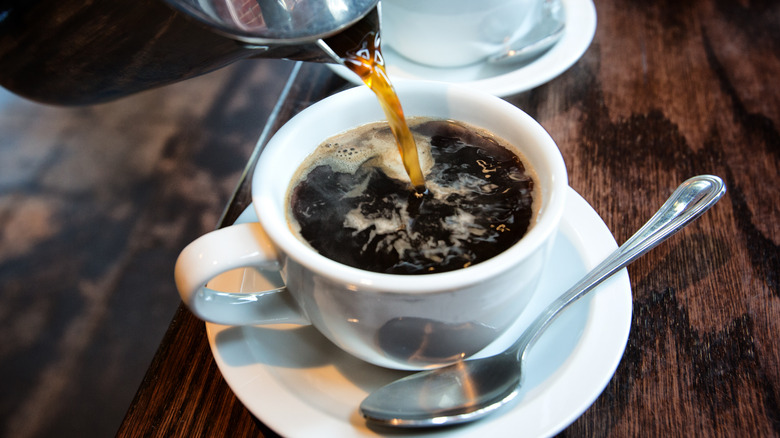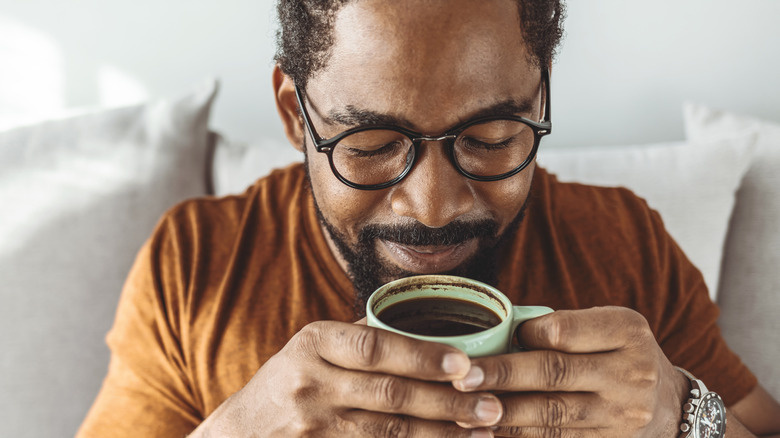Turns Out, Coffee Does More To Our Brains Than We Thought
Look through Instagram on any given Monday morning to find a plethora of coffee-themed memes, like My blood type is dark roast positive, and Coffee: a cup of get sh** done. They may be kitschy but to coffee lovers, aka coffee addicts, they're also very true: The day just cannot begin without that cup of joe. It's what gets us out of bed and gets us through the workweek. There are many myths about coffee – some true, and others not so true. The prevailing assumption about coffee dependency is that it all comes down to caffeine, that magical substance that wakes people up and provides a jolt of energy and productivity. However, a recent scientific study reveals that there's an even stronger, brain-stimulating force that keeps coffee lovers hooked.
The study published by Frontiers in Behavioral Neuroscience tested two groups of people: one who was given coffee and one who was given flavorless caffeinated water. Scientists then performed MRI scans on the two groups to see how their brains reacted to the drinks. As expected, the group who drank coffee had increased alertness. The surprise though was that the caffeinated water did not create the same boost in brain function, specifically in relation to memory and focus. The researchers concluded that coffee's real superpower may be in the pure joy of drinking it, coupled with the expectation of the boost it will give.
The ritual helps to wake us up
This study indicates that the rituals associated with drinking coffee are a key component of the kick it gives us. FBN scientists share that the findings of the study point not to caffeine as the stimulus, but instead to "the sensory experience of having coffee, which is determined by a complex interaction of multiple compounds present in coffee beverages." This includes the aroma of freshly ground coffee, the sound of it brewing, the warmth of coffee in the hands, and the flavor of that first sip.
Emotions also contribute to the boost we feel from coffee, such as anticipation and the belief that it will wake us up and get us going. There are positive associations too. Coffee may be part of daily routines with friends, co-workers, and partners. Coffee stimulates the pleasure centers of the brain in a way that caffeine alone can't match.
This study was limited in scope — there were 83 participants, the majority of whom were female — and they failed to test with decaffeinated coffee. For people who avoid caffeine, it's possible that an aromatic cup of decaf could be just as stimulating as regular coffee, but it might also be that since they don't have the same expectation of extra energy, they wouldn't get the same result. Coffee also contains chemicals called epicatechins, which improve cognitive function and blood flow to the brain (per the National Library of Medicine), and it would require more research to understand the extent these affect brain functions after drinking regular or decaf coffee.

